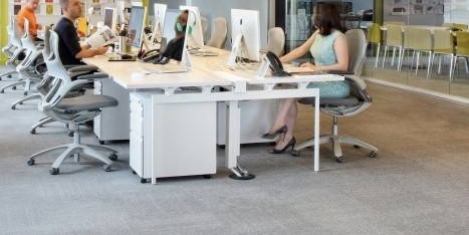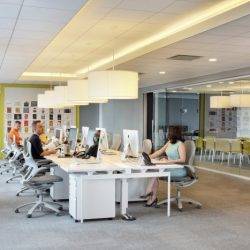March 28, 2017
New wellbeing index measures level of support for staff with poor mental health 0

Just over half (53 per cent) of staff who had disclosed poor mental health at work said they felt supported, and 72 per cent said they’d been made aware of the support tools such as Employee Assistance Programmes (EAPs), counselling, staff support network or informal buddying systems, a new piece of research has disclosed. The data has been gathered by mental health charity Mind to give an insight into the mental health of 15,000 employees participating in Mind’s first ever Workplace Wellbeing Index, a brand new benchmark of best policy and practice when it comes to staff mental health. Thirty organisations participated in Mind’s first ever Workplace Wellbeing Index, including Deloitte, HMRC, the Environment Agency, Jaguar Land Rover and PepsiCo. Over half (56 per cent) of employees who reported mental ill health were offered reasonable adjustments or support measures, such as changes to hours worked or the nature of some of their duties.















 Amos Tversky and Daniel Kahneman introduced the concept of Loss Aversion in 1984, highlighting people’s tendency to strongly prefer avoiding losses to acquiring gains. Most studies suggest that losses are twice as powerful, psychologically, as gains. Lose £100 and we will feel a remorse that easily outweighs winning £100. In a similar fashion we find it very hard to see future positives when confronted with short term loses. We understand easily what we have lost but cannot imagine what there is to be gained. Furthermore, as Frederic Bastiat wrote in an 1850 paper, “That Which is Seen, and That Which is Not Seen”, man has a tendency to “pursue a small present good, which will be followed by a great evil to come, rather than a great good to come, at the risk of a small present evil”. Put these together and it is no wonder that, by and large, the future of work, corporate real estate and the workplace is so widely misunderstood.
Amos Tversky and Daniel Kahneman introduced the concept of Loss Aversion in 1984, highlighting people’s tendency to strongly prefer avoiding losses to acquiring gains. Most studies suggest that losses are twice as powerful, psychologically, as gains. Lose £100 and we will feel a remorse that easily outweighs winning £100. In a similar fashion we find it very hard to see future positives when confronted with short term loses. We understand easily what we have lost but cannot imagine what there is to be gained. Furthermore, as Frederic Bastiat wrote in an 1850 paper, “That Which is Seen, and That Which is Not Seen”, man has a tendency to “pursue a small present good, which will be followed by a great evil to come, rather than a great good to come, at the risk of a small present evil”. Put these together and it is no wonder that, by and large, the future of work, corporate real estate and the workplace is so widely misunderstood.

















February 13, 2017
Neuroscience can function as a management tool for personal development 0
by Mike James • Comment, Workplace
More →